Crisis in Sudan
Sudan is facing the world's largest ongoing displacement and hunger crisis. We must act now.
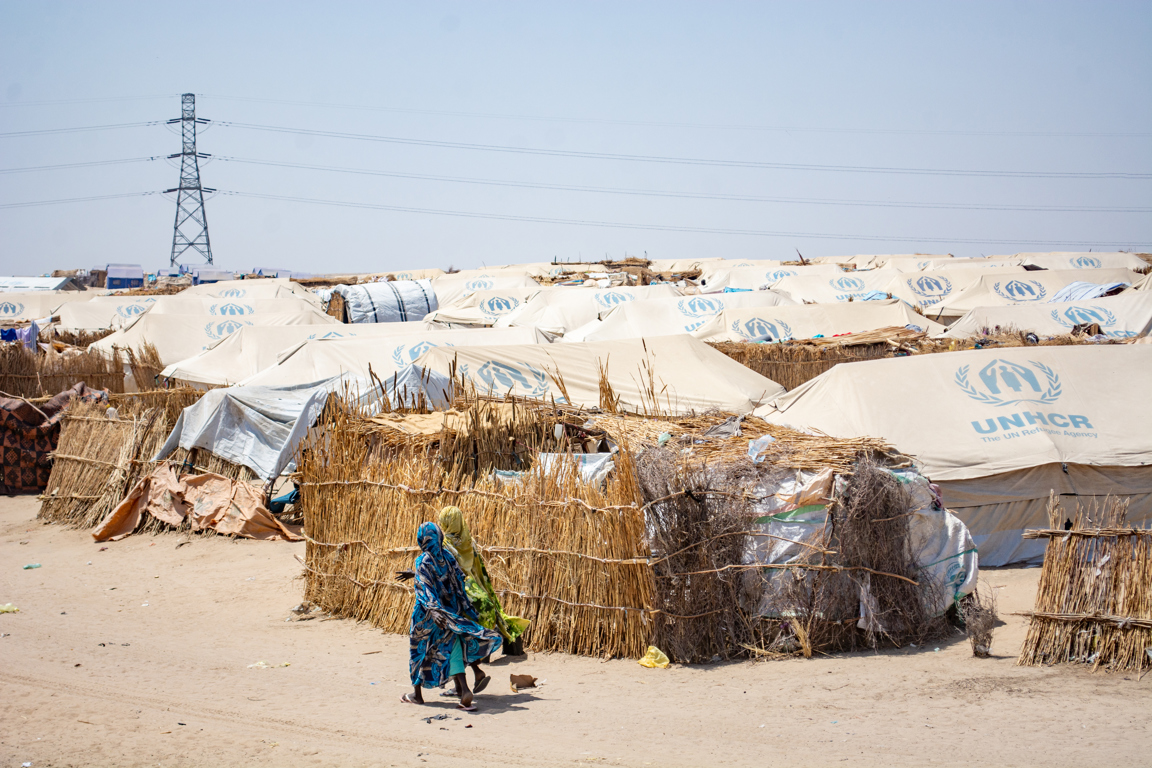
A camp for displaced people from Sudan. Image: CAFOD.
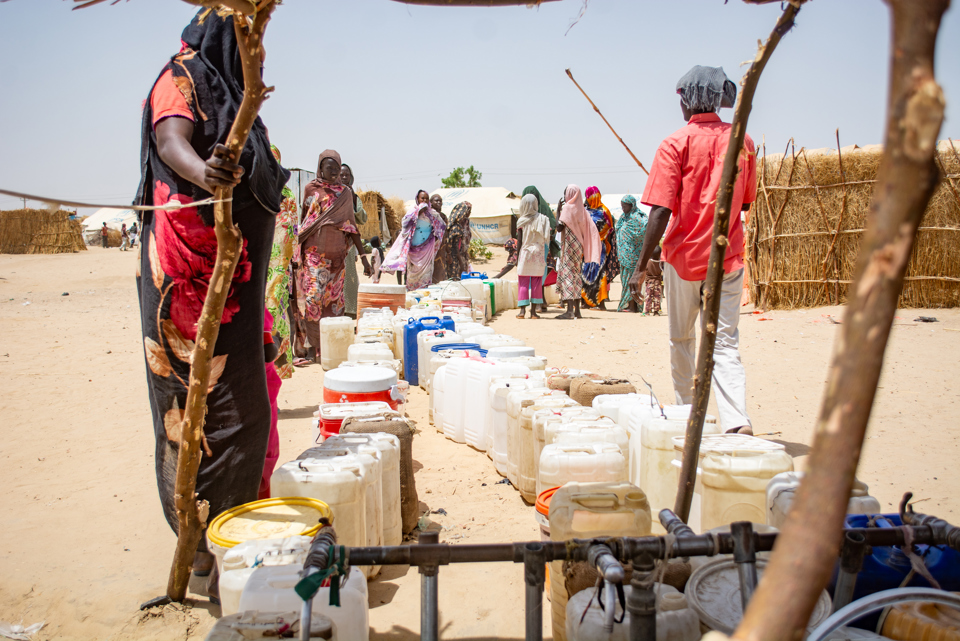
A camp for displaced Sudanese people. Photo: CAFOD.
What is the current situation in Sudan?
- It has been two years since the start of the devastating conflict in Sudan.
- The country is facing one of the world’s largest humanitarian crises, with conflict, hunger, and disease devastating millions of lives.
- Nearly 11 million people are internally displaced and 2.3 million people have fled to neighbouring countries.
- Sudan hosts 14% of the world's internally displaced people.
- Over half the displaced population are women and girls, and 54% are under 18 years of age.
- More than 25 million people are struggling with food insecurity.
- 750,000 people in North Darfur are in famine conditions and are facing starvation.
- Sudan’s rainy season in mid-2024 brought severe flooding, compounding the suffering of displaced families.
- A cholera outbreak has claimed over 1,000 lives and infected over 35,000 people across 11 states.
- The conflict has spread to regions critical for agriculture and trade, including Greater Darfur, Greater Kordofan, and key wheat-producing areas in Al Jazirah. This expansion has further destabilized the country, forcing families to flee eastward and cutting off essential access routes.
- As of the end of March 2025 the UN reported a 90 per cent funding shortfall for its plans to support 21 million Sudanese people.
- In January 2025, The U.S. government determined that members of paramilitary forces and militias in Sudan had engaged in genocide as part of the ongoing conflict. This determination is based on the ethnic targeting of men and boys, the targeting of fleeing civilians, and the use of sexual violence against women and girls from certain ethnic groups.
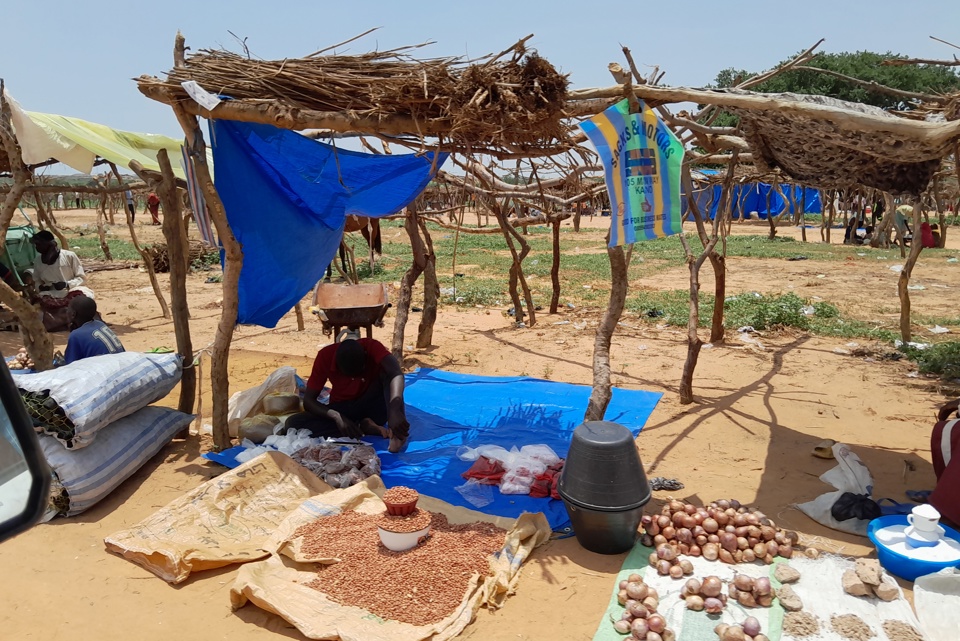
A man seeks shade at a transit camp for Sudanese refugees. Photo: Caritas Mongo
The humanitarian crisis in Sudan
30 million people
are in need of acute humanitarian assistance.
Over 14 million
of those in need are children.
Over 13 million people
have been forced to flee their homes.
Over 20,000 people
have been killed since April 2023.
Our partners are on the ground providing vulnerable communities with:
Support to families forced from their homes by conflict
Emergency Shelter
Safe, clean water
Sanitation and hygiene support
How your donation helps Sudan’s most vulnerable
In partnership with CAFOD, and local partners SOS Sahel and ERRADA, we have supported:
3,195 households
with cash assistance.
98,322 people
with access to water, sanitation and hygiene services.
15,680 people
with protection services.
Food distribution
at 17 gathering points for internally displaced people.
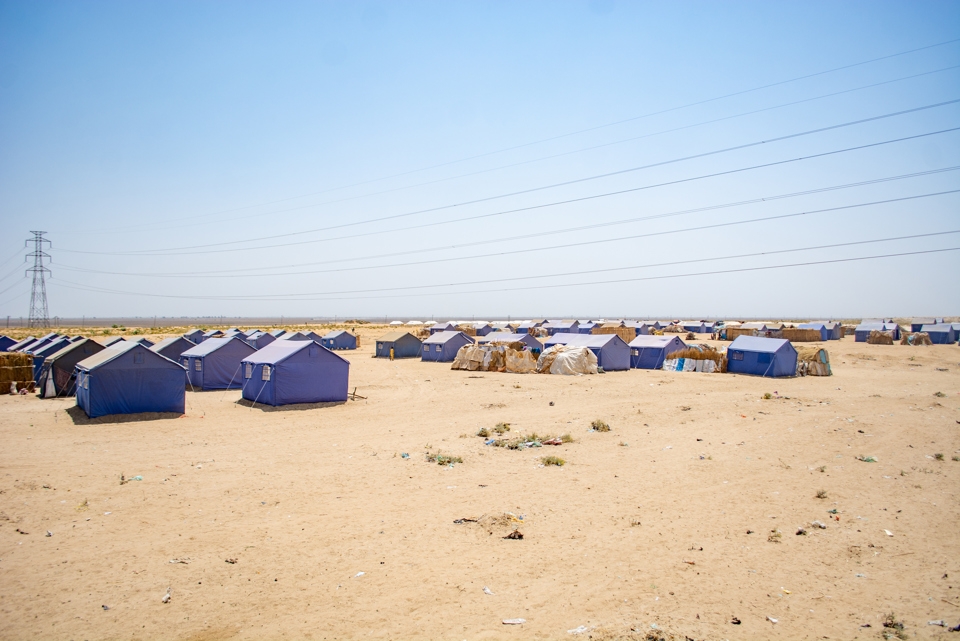
A camp for displaced people from Sudan. Photo: CAFOD.
What are the major issues facing people in Sudan?
- As the conflict spreads, violence has increased across the country, including a serious increase in sexual violence.
- Essential infrastructure has been destroyed, hampering access to certain areas and reducing access to essential services.
- Food insecurity is increasing in severity, with all displaced people in Sudan at minimum Phase 3 on the WFP food crisis scale, where malnutrition becomes an issue. 3.6 million people are at Phase 4, where malnutrition becomes acute, and over 750,000 at Phase 5 where people face famine.
- Water-borne diseases including cholera are spreading.
Critical needs: what do people in Sudan need most right now?
The conflict has created an urgent need for:
✔️ Emergency shelter and food for food insecure families.
✔️ Clean water and support for hygiene and sanitation.
✔️ Essential medicines, health and psychosocial support.
✔️ Protection for vulnerable communities
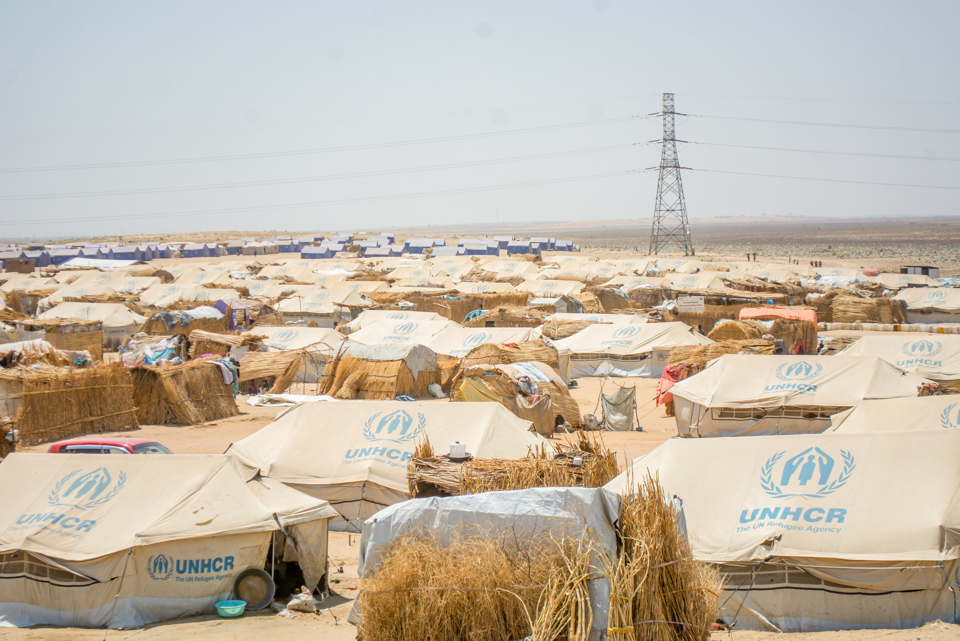
A camp for displaced Sudanese people. Photo: CAFOD.
Stand with Sudan - donate today
Your donation can help Sudan's most vulnerable with emergency shelter, essential supplies, food and water provisions, and health and psychosocial support.
Donate now to help families in Sudan.
How your donation helps

Handwashing facilities in a refugee camp in White Nile State, Sudan, installed to prevent the spread of coronavirus. Photo CAFOD
Can provide construction of latrines, hand washing facilities and gender-segregated bathing facilities.

Caritas Mongo supporting Sudanese refugees as they arrive in Chad. Photo credit: Caritas Mongo.
Can provide sleeping mats, mosquito nets, and blankets for families forced from their homes by conflict.

A camp for displaced people from Sudan. Image: CAFOD.
Can help procure and install a 5,000 litre water tank to bring clean water access to vulnerable families.
Humanitarian toll of the Sudan conflict
📌 Casualties
-
Tens of thousands of people have lost their lives.
- Many more have been injured.
-
Over 300 healthcare workers and patients have been killed in attacks on hospitals.
📌 Humanitarian crisis
-
30 million people are in need of humanitarian assistance.
- 25 million people are facing acute food insecurity including famine conditions.
How is Caritas Australia responding to the Sudan crisis?
In partnership with CAFOD, and local partners SOS Sahel and ERRADA, we are supporting:
- Food distribution at 17 gathering points for internally displaced people.
- Multi-purpose cash assistance.
- Access to clean, safe water and hygiene services.
- Shelter for internally displaced people and refugees.
We are also supporting a joint appeal from Caritas Internationalis and ACT Alliance in consultation with the Catholic Bishops of Sudan, aimed at bringing water and hygiene services, gender-based violence protection, and cash assistance to assist with food security, to 100,000 people.
This year, your donations have contributed to:
- Multi-purpose cash assistance being delivered to 3,195 households.
- Water, sanitation and hygiene services being delivered to 98,322 individuals.
- Protection services being delivered to 15,680 individuals.

Caritas Mongo supporting Sudanese refugees as they arrive in Chad. Photo credit: Caritas Mongo.
Social justice for Sudan
Our work is shaped by the principles of Catholic Social Teaching:
The Dignity of the Human Person
The Common Good
Subsidiarity and Participation
Solidarity
Preferential Option for the Poor
Economic Justice
Care for our Common Home
Promotion of Peace
Joint statement to Human Rights Council
Caritas Internationalis, along with ACT Alliance and Jesuit Refugee Services presented the following joint statement to the Human Rights Council:
"We are deeply concerned regarding the ongoing humanitarian crisis in Sudan, which has been affecting millions of people, particularly women and children, for nearly two years. The unrelenting conflict has led to widespread hunger, with nearly 25 million people facing acute food insecurity, and alarming levels of sexual violence. Humanitarian access challenges and safety of humanitarian personnel also contribute to exacerbating the humanitarian crisis.
The urgent need for immediate unhindered and safe humanitarian access across Sudan and its borders, as well as increased funding for local and national responders and bold diplomatic efforts to end the violence and find a way to peace is essential.
We therefore urge the international community to demonstrate greater solidarity and financial support to respond to the huge and increasing humanitarian needs of the Sudanese people."
“We are incredibly proud of our partners who continue, under extremely challenging conditions, to provide sanitation services that help prevent the spread of disease, while assisting vulnerable people with protection services and the means to procure lifesaving necessities."
FAQ
Sudan currently faces multiple problems that are all critical, including food insecurity and famine, displacement, disease and conflict.
Your donation will be used to support our partners on the ground in Sudan who are delivering support to vulnerable communities with emergency shelter, health and medical support, and access to clean water, hygiene and sanitation support.
No, our partners on the ground are best placed to decide where funds are directed based on their expertise and first-hand experience of the priority needs of the population, and the current context and access situation.
As part of one of the biggest humanitarian networks in the world, we work alongside partner organisations who have been in the region for decades, and have the necessary knowledge, experience and expertise to ensure donations are used effectively. We are DFAT accredited and ACFID signatories, ensuring that we have responsible governance of funds at the highest level.
Yes, all donations over $2 are tax deductible.
No, we do not accept donations of goods. Goods can be expensive through shipping and storage fees, and cause logistics issues which can delay the arrival of much needed aid.
Yes, we deliver aid to those who need it most, regardless of cultural, religious or political differences.

Dignity kits distribution by CAFOD in Sudan. Photo CAFOD
Where does my donation go?
The funds you donate to this appeal go to Caritas Australia’s Emergency Response Fund and will be used to provide humanitarian assistance to communities affected by this crisis. Should circumstances prevent us from delivering aid to this emergency, or if excess funds remain after the crisis, donations will be directed to other emergencies where Caritas has humanitarian operations.













